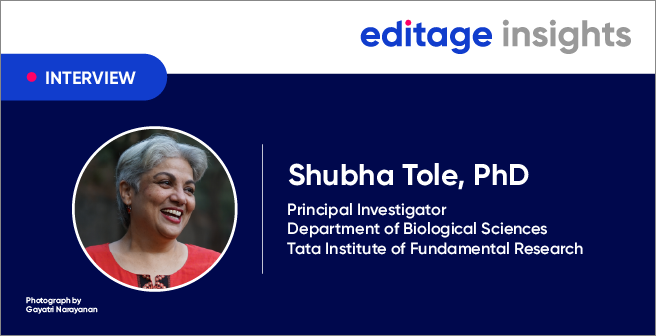The road to scholarly independence is not a smooth one

A few weeks ago, I realized that I had finally hit the upward swing of the independence curve that is often associated with a doctoral student’s research journey.
Every student has their own pace; their own rate of advancement. In my case, I struggled to achieve independence early due to the vested interests I held in succeeding in the work I undertook. Some students, such as those hired by their supervisor, have a longer wait until they can feel ‘independent’ off their professors. This can be attributed to the fact that the student needs to learn more from their professor before they can step out into their own, or perhaps the student lacks the confidence to make academic judgement calls.
In my case, my supervisors loosely held the reins until I was ready to take them back.
I was able to achieve this within 16 months of beginning my PhD because I led the charge. I designed the project, gathered the literature, wrote chapters and drafts, set the pace of progress, set up my sample and scope, and I recruited most of the participants on my own. Essentially, I brought a ready-made project to the table and asked a professor to ‘sign it off’ for me.
Now, not to say my professors aren’t helpful. They check my work for quality, point out areas they think could be improved, and occasionally, touch base to see if I’m doing alright. As this is my first foray into publicly advertised research, I’m still learning. I, occasionally, make a few missteps and mistakes along the way, though thankfully, nothing serious. I check in with more experienced professionals for their advice on issues like ‘if this comes up, what should I do?’ and ‘someone asked me this; I hadn’t considered it. What do you think?’. Sometimes, it’s purely a formality – it’s polite to ask before I proceed with my work – but on other occasions, I genuinely need a helping hand. Having a support network of experienced professionals, such as my professors and a clinical supervisor, is a lifesaver during times of uncertainty.
Yet, over the last few weeks, those moments of uncertainty have dissipated and become less frequent. I stride into the hospital, confident that I know what I’m doing, and conduct near-flawless work. Sure, some things could be improved, but no researcher’s work is perfect. It can be good, or bad, or in dire need of an audit. I know without a second’s hesitation that if I had to present my work to an oversight committee and justify every action, every participant, every decision, I could do so without blinking. I can stand by the integrity of my project with pride, and confidently tell the world what I’ve found.
And, a few weeks ago, I received feedback from my supervisors that I decided was irrelevant.
Not that the feedback was bad; it was good, general feedback on qualitative interview style between myself and my research assistant. My professors probably couldn’t tell which interview was which (I did this on purpose, so that each interview would hold equal weight). They gave feedback such as ‘get more in-depth answers on X’ and ‘follow up Y…’ except, I had to discard that feedback due to their lack of context.
See, without the benefit of additional context, my professors’ feedback is irrelevant.
I did not ‘follow up Y’ in the interview on purpose, as to do so would put the participant’s identity at risk. The interviews I’m conducting are anonymous and de-identified during research, meaning that specific anecdotes (such as specific persons or roles in a ward) are redacted or replaced with general indicators (such as [person] and [role]). When an anecdote is just too specific, I add a line in the transcript to indicate that an anecdote was provided along the lines of X topic, but that it had to be removed for the participant’s privacy.
Usually, participants agree with this decision, as their privacy is a key concern for my research. So, in many cases, certain topics are not followed-up on during the interview because of a very valid and important reason. In essence, my participants’ safety comes first – regardless of whether my professor thinks the information would contain good data.
In balancing the different needs of different stakeholders engaged with my project, I am mindful of my role as project lead. This makes me proud of my achievement; that I have matured and learned enough that I can now hold this position of responsibility – to protect participants’ identities, to collect good data for use in my project, and to present the data in a way that is meaningful and useful for the health system I’m working with. In the end, hopefully, the resulting work will earn me a doctorate post-nominal, and I can proceed with turning this work into a career (hopefully!).
Could I have had this level of independence with my old supervisors? Definitely not. With their talks of taking over my project and railroading my efforts towards self-sufficiency, their perspective would have been a poor fit and curbed my ability to achieve my goals. With this new team, their relative laissez-faire approach to my supervision suits me perfectly. I get to be the confident, independent researcher that I want to be, with the benefit of my professors’ experience, should I need it.
And, on the other side, my professors get to add my name to their list of students without a significant level of intellectual burden because of my ability to go away, do my work, and come back with structured questions and specific areas I want assistance with. I consider it a win-win, all things considered.
Could I end up finishing this PhD on my own? At this stage, almost certainly. Would I want to? Definitely not. I appreciate and benefit from the networks that exist to support my project; I intend to use them all right up until my submission deadline to ensure that the resulting work is the best quality it can be.
Until then, though, the power is all in my hands.
Madeleine Kendrick (@MIKendrick94) is a PhD candidate (Scholarship Recipient, Full-time), an Academic Research Assistant, and a Business Consultant. This story was published on December 19, 2018, on Madeleine’s blog, Research & Beyond (available here), and has been republished here with her permission.




